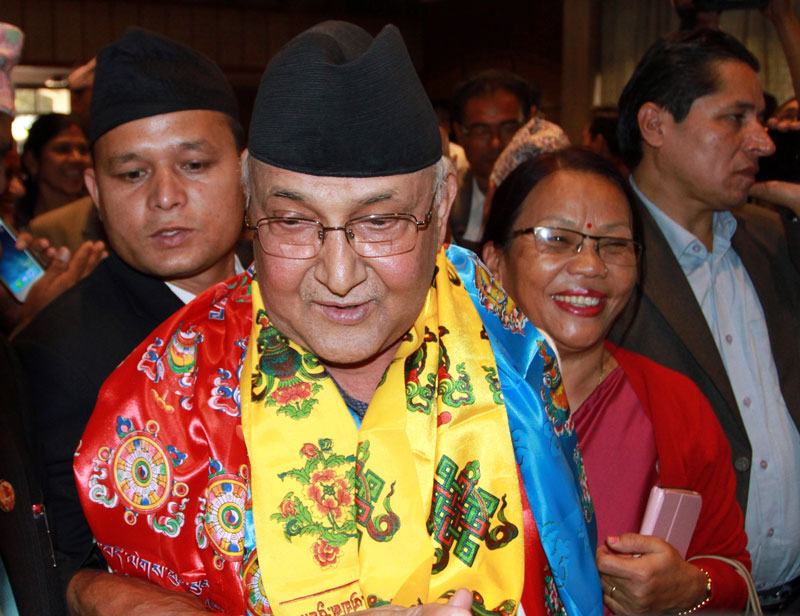AI seeks amendments to new constitution
The global rights body has sought amendments to provisions regarding citizenship, right to life, right to freedom, child’s rights and state of emergency
Kathmandu, November 4
Amnesty International has written an 11 page open letter to Prime Minister KP Sharma Oli seeking his urgent attention to a number of concerns regarding the new Constitution.
It has sought amendments to the constitutional provisions regarding citizenship, right to life, right to freedom, women’s rights, and child’s rights and about state of emergency, among other things.
AI said it was pleased to see a charter that has a strong articulation of key civil and political as well as economic, social and cultural rights and norms, yet the new constitution still has some major human rights shortcomings.
AI said the rights of women, ethnic groups and marginalised communities, such as Dalits, have not been clearly and sufficiently protected in the constitution.
Furthermore, the proposed federalist structure in the Constitution, rejected by ethnic groups who see the new federal boundaries as denying them political representation, resulted in peaceful and sometimes violent protests in the Terai, AI said.
“Nepali security forces resorted to excessive, disproportionate or unnecessary force in several clashes with protesters. As of early October, while protests continue, scores have been injured and at least 33 protesters and 10 police personnel were killed in violation of the right to life, which we deeply regret is not protected in the Constitution,” AI said.
David Griffiths, South Asia Research Director of Amnesty International wrote the letter urging the PM to bring about a number of important amendments to ensure that human rights of all people of Nepal are guaranteed in the Constitution.
AI said it was also bringing these concerns to the attention of the member states of the Human Rights Council participating in Nepal’s Universal Periodic Review on 4 November.
AI said Article 11 (3) of the constitution should be amended to grant citizenship to children at birth, not merely on attainment of majority.
On Article 11 (3) which requires that in order for a child to acquire citizenship by descent, it must be proved that both father and mother are Nepali citizens, AI said, it was exclusive and discriminatory towards children of single parents, Nepali women married to foreigners, refugee parents who might be unable to prove citizenship of both parents, as well as LGBTI parents.
AI said provision for non-resident citizenship was discriminatory on its face, particularly against people of Nepali origin living in the South Asia region, who constitute the great majority of those living abroad.
AI said Article 18 (3), which names the marginalised groups which qualify for “special provisions by law” for their “protection, empowerment or advancement,” includes “financially deprived” Khas Arya, a historically advantaged group with strong political power.
“The special provisions envisaged by this article are targeted at ethnic and religious groups which have been historically marginalised, and are in line with obligations under international human rights treaties,” AI added.
It further said the inclusion of the Khas Arya is a misinterpretation of those obligations and essentially renders their adoption for the acceleration of de facto equality between advantaged and disadvantaged groups irrelevant.
The situation of financial deprivation of poorer members of the Khas Arya is not linked to their membership of that community, and should be addressed under poverty alleviation measures aimed at the general population, AI argued.
AI said it was important to ensure that nothing in the Constitution could be used to prevent accountability for crimes under international law committed during the past conflict.
AI said Article 276 entrusts the President with sweeping authority on pardoning and clemency without any provision that bars de facto and de jure amnesties for crimes under international law such as enforced disappearance, torture, extra-judicial executions, war crimes and crimes against humanity.






